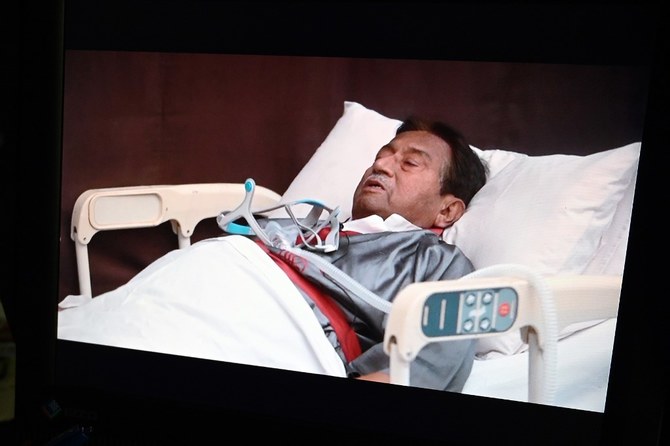Former Pakistan leader Musharraf slams death sentence 'vendetta'
Thu 19 Dec 2019, 13:43:42

Islamabad: Exiled former Pakistan military leader Pervez Musharraf dismissed the unprecedented treason conviction and death sentence handed to him earlier this week, saying the ruling was the result of a “personal vendetta”.
The special court’s decision announced Tuesday marked the first time a former leader of the armed forces has been convicted of treason and sentenced to death in Pakistan, where the military wields enormous power and has ruled the country for roughly half its 72-year history.
“This case was taken up and proceeded due to a personal vendetta by some people against me,” said Musharraf in a video statement released by his assistant late Wednesday night.
Musharraf — who is reportedly in Dubai and in poor health — appeared in a hospital bed in the video looking frail and was straining to speak.
The former general however said he remained undecided on his next move or whether his legal team was planning to appeal the conviction.
The treason case — which began in 2013 and is one of several involving Musharraf — centred on his decision to suspend the constitution and impose emergency rule in 2007.
The ruling has infuriated Pakistan’s security establishment, with the military’s spokesman swiftly condemning the verdict and saying the armed forces were in “pain and anguish” over the decision.
“An ex-Army Chief, Chairman Joint Chief of Staff Committee and President of Pakistan, who has served the country for over 40 years, fought wars for the defence of the country can surely never be a traitor,” the military said
Tuesday.
Tuesday.
Prime Minister Imran Khan — a former rival of Musharraf — has stayed largely quiet since the ruling.
Khan is broadly considered to be pro-military and several ministers in his administration had previously served in Musharraf’s military government.
Musharraf first took power after ousting prime minister Nawaz Sharif in a bloodless coup in 1999.
A cigar-smoking, whisky-drinking moderate, the general became a vital American ally in the “war on terror” after the September 11 attacks and escaped at least three Al-Qaeda assassination attempts during his nine years in office.
His rule faced no serious challenges until he tried to sack the chief justice in March 2007, sparking nationwide protests and months of turmoil that led to the imposition of a state of emergency.
After the December 2007 assassination of former prime minister Benazir Bhutto, the national mood plunged and he was left increasingly isolated by the crushing losses suffered by his allies in February 2008 elections.
Musharraf finally resigned in August 2008 in the face of impeachment proceedings by the new governing coalition and went into exile.
He returned to Pakistan in 2013 in an attempt to contest elections, but was barred from taking part in the polls and from leaving the country as a barrage of legal cases mounted.
The treason case was first launched against Musharraf by his old foe Sharif in 2013.
The case went on for years amid repeated delays until Tuesday’s surprise announcement.
No Comments For This Post, Be first to write a Comment.
Most viewed from International
Most viewed from World
AIMIM News
Latest Urdu News
Most Viewed
May 26, 2020
Do you think Canada-India relations will improve under New PM Mark Carney?
Latest Videos View All
Like Us
Home
About Us
Advertise With Us
All Polls
Epaper Archives
Privacy Policy
Contact Us
Download Etemaad App
© 2025 Etemaad Daily News, All Rights Reserved.

.jpg)
.jpg)
.jpg)






.jpg)


.jpg)
.jpg)
.jpg)
.jpg)
.jpg)
.jpg)
.jpg)
.jpg)
.jpg)
.jpg)
.jpg)
.jpg)

















